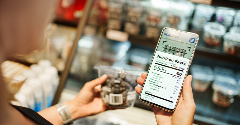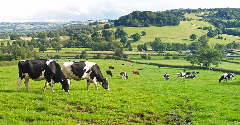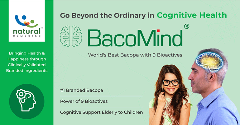News
Creating Value through Sustainable Packaging
16 Sep 2014Sustainability has become a key corporate goal, particularly for the fast-moving consumer goods industry with widespread implications for packaging. For example there is increasing demand for greater energy efficiency in packaging and for products and packaging which can reduce product losses within the complex logistics chains – which eventually finish with the consumer. Broadly there […]

Sustainability has become a key corporate goal, particularly for the fast-moving consumer goods industry with widespread implications for packaging. For example there is increasing demand for greater energy efficiency in packaging and for products and packaging which can reduce product losses within the complex logistics chains – which eventually finish with the consumer. Broadly there is also an emergent perspective of ‘truly ecological’ packaging/product systems, rooted in the concept of a circular economy – with the ambition to achieve zero waste, triggering wider more integrated and innovative stakeholder interactions.
A variety of strategies exist to meet the “demand driven” need for eco-innovative packaging and these converge with industry’s current accentuated need for economic efficiency – mirroring two sides of the same sustainability issue. The resultant challenge leads to a highly complex eco-innovation domain, requiring input from a broad range of key influencers which includes brands, consumer groups, technologies and NGOs. The packaging sector is of particular interest within this context because these networks are interwoven in the wide range of functional and emotional brand requirements linked to sustainable packaging. Critically, packaging is also the key touch point between a brand and its perceived credentials and commitment to sustainability.
It is important, therefore, that companies wishing to be successful in delivering eco-innovative solutions understand both (i) the context of eco-innovation in respect of the variety of different influencers and (ii) how to innovate and achieve successful outcomes within this domain.
Conceptual models will be presented at our Fi Global Summit 2014 workshop which will allow us to consider the relationship between networks of influencers and the goal of eco-innovation in a context which mirrors current trends in FMCG packaging. This approach will also facilitate the exploration of eco-innovation in unique scenarios – where new levels of connectivity between influencers in the future may lead to different and more desirable outcomes for brands, consumers and the environment. As a precursor we site a number of connections which highlight this rich multi-perspective view and which is a valuable springboard for eco-innovation:
The technology connection
From a technological perspective we increasingly see how successful organisations deploy a wide range of tools and techniques to facilitate network connection and understanding – not least the use of external individual, agents and organisations to mine and filter new technology and initiate new directions for product propositions. The domain of smart and active packaging systems is such an area; where for example, ethylene absorber technology is now mature and being exploited to extend the shelf life of fresh strawberries and avocados. Innovative barrier layers using aluminium nanoparticles applied directly to plastic film replacing the need for foil laminates; and intelligent packaging solutions such as temperature time indicators (TTIs) used in labels to indicate product freshness are also part of this technical and sustainable opportunity space.
Sector competitiveness is also driving a growing interest in new sources of IP such as universities and distributed ‘open-innovation’ practices – which are in turn bringing additional challenges to successful technology development.
The consumer connection
In terms of the consumer, the increase in virtual web serviced businesses is forcing companies to rely more on packaging as the key first experience of a brands product offering. Companies such as Amazon who appreciate this dynamic have increased their connectivity to the consumer in an effort to forge stronger links and relationships with their brand – in Amazon’s case by facilitating consumer feedback in relation to their packaging via their website.
There are many ways packaging may add value to brands through better emotional engagement with consumers whilst delivering environmental sustainability. For example, Sweden based Innventia’s ingenious origami style carton for noodles reveals a small hole in the bowl following removal of a retaining strip by the user. This allows hot water to be poured in which causes the compact carton to expand into a generous meal. Thus, the 100% compostable paper-based carton serves up convenience combined with eco-friendliness, in a way which is novel and highly direct in its engagement of the user.
The brand connection
The pressure for brands to balance cost competitiveness against environment and public perception is still extremely challenging. However, some companies have found highly distinct and novel ways to achieve this. For example, Daylesford Organic Farm has adopted the innovative and highly resource efficient Ecolean pouch with ergonomic air sac handle for its milk. The flexible multi-layered film consists of 60% polyethylene and polypropylene, and 40% calcium carbonate. This has enabled a significant saving in their packaging’s carbon footprint compared to a standard HDPE bottle – while providing a highly differentiated brand/packaging experience in their sector.
For many brands the perceptual issueswhich surround new packaging formats and more sustainable solutions need to be carefully considered – especially since consumers are increasingly questioning corporate practice generally in the face of issues such as environment, health and food safety.
In summary, understanding relationships of key stakeholders in the eco-innovation network, not least the end-user and numerous separate ‘solution-providers’, are central to brands achieving innovative and effective outcomes which ultimately deliver real business value.
Related news

Has ‘clean’ had its day?
22 Dec 2025
Wielding clean-label positioning and fortification as marketing levers is a dangerous strategy, and brands would be better off explaining the hows and whys of the ingredients in their products, say experts.
Read more
Celebrating the winners of the Fi Europe Innovation Awards 2025
3 Dec 2025
Food industry stakeholders celebrated as the winners of the Fi Europe Innovation Awards were announced at a ceremony in Paris.
Read more
Alternative protein startups pivot to B2B ingredients amid funding shift
27 Nov 2025
Alt protein startups are pivoting from consumer meat analogues to high-value B2B ingredients, driven by stronger investor interest, better margins, and clearer commercial pathways.
Read more
Walmart Marketplace’s record growth prompts search for UK sellers
26 Sep 2025
Walmart’s third-party e-commerce platform, Marketplace, has witnessed extraordinary growth – but a need for more product diversity has prompted the retailer to recruit UK sellers.
Read more
The winners of Vitafoods Europe Startup Challenge 2025 revealed
29 May 2025
Four startups – Yomio Drops, PFx Biotech, Revobiom, and Favamole – took top prizes at this year’s Vitafoods Europe Startup Challenge awards.
Read more
East takes on West in the fight for future food flavours
30 Apr 2025
Asian and South American flavours are now key components on global menus, driven by a growing global appetite for culinary mashups.
Read more
Food companies urged to bring ‘joy’ and urgency to healthy food mission
14 Mar 2025
For too long, businesses have treated health and sustainability as separate agendas – but there is growing evidence to show diets that benefit human health can also enhance that of the planet, say experts.
Read more
Entries open for inaugural Vitafoods Europe Innovation Awards
29 Jan 2025
Entries are open for the inaugural Vitafoods Europe Innovation Awards, celebrating the ingredients, finished products, partnerships, and initiatives redefining the nutraceutical landscape.
Read more
Paris Olympics: Food and beverage brands champion health, fun, and sustainability
5 Aug 2024
Food and beverage brands are aligning with the Paris Olympics 2024 Food Vision, which emphasises sustainability, local sourcing, and plant-based diets.
Read more
Natural Remedies: Bringing health and happiness via validated branded ingredients
18 Apr 2024
Natural Remedies is an internationally renowned botanical healthcare company committed to advancing the field through rigorous research and the development of clinically validated Branded Ingredients. Guided by our foundational principle of ‘BEING USEF...
Read more